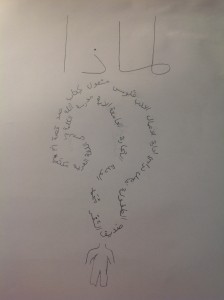Far-off lands can seem so appealing. The elusive scent of possibility, the world where everything seems possible… one simply can’t resist it. In Ambiguous Adventure, Samba leaves his home for the world of French enlightenment: Paris. The book captures the inherent danger in cross-cultural change to one’s identity. Samba grows up in the world of French imperialism, so the culture is not as foreign as others to him. And yet, he faces the same tradeoff that many others leaving home struggle with: either to leave home and his identity behind in search of new horizons and philosophies, or to preserve his culture by remaining in one’s native country. By the end of the story, Samba suffers the consequence of ignoring this tradeoff, losing both his identity and his opportunity to grow. His failure begs the tantalizing yet pessimistic question, is it possible for people to leave their homes with any sort of baggage, or will the weight of their culture-packed suitcases weigh them down into oblivion? A modernizing America presents the possibility for successful cross-cultural exchange; as more and more groups have become represented, people have banded together through communities and demonstrations to express their cultures within the context of the American society. As we move forward in history, we must keep the integration and inclusion of social groups at the front of our minds. Each individual voice can contribute to the growth and diversification of our society. So rather than providing the opportunity for foreigners to come and “learn our ways,” we should be equally if not more focused on learning from them. Let’s stop talking, at least for a moment, and start listening.
_ _ _ _ _ _ _ _ _ _ _ _ _ _ _ _ _ _ _ _ _ _ _ _ _ _ _ _ _
You find yourself at the interim.
Finally free of the chains of your home, you pursue your dreams.
You catapult yourself into the skies for hopes of reaching the stars.
Faith, enlightenment, wealth…
Everything seems just a stone’s throw away.
Find the world, and bring it back to us.
And yet, heritage was your lever.
You no longer are the devoted, cultural harbinger that you hoped to be.
Leaving home, you had hoped to return one day, a better man with more to offer.
But you quickly learn that to get something, you have to give something up.
So you soar into the air, devoid of purpose.
Devoid of all the messages you had hoped to carry.
You see the edge of glory, and reach out for it.
But you are no longer what you were.
What you thought were your hands are now your feet.
All senses have been jumbled, shaken by the disruption of departure.
You reach out, but you no longer can catch hold of what seems so close.
And so, you fall back to the interim.
No longer in the skies,
No longer on the ground,
You float, empty, wishing, lost.
